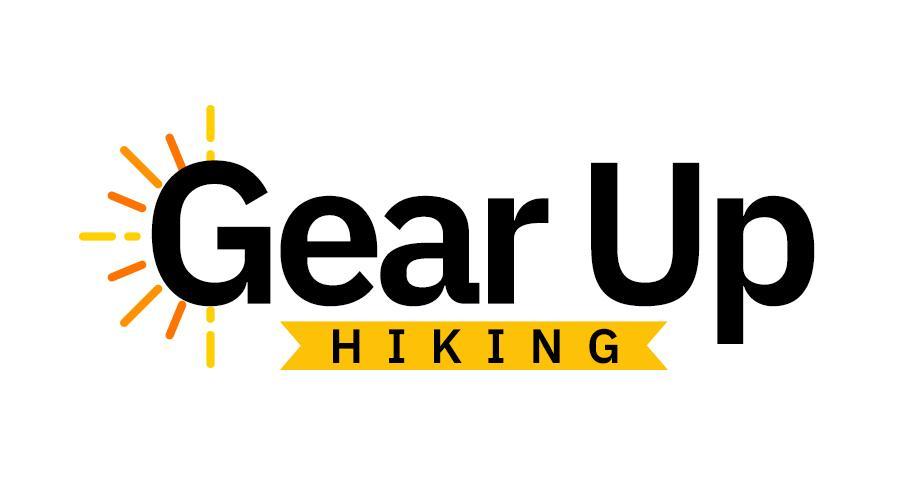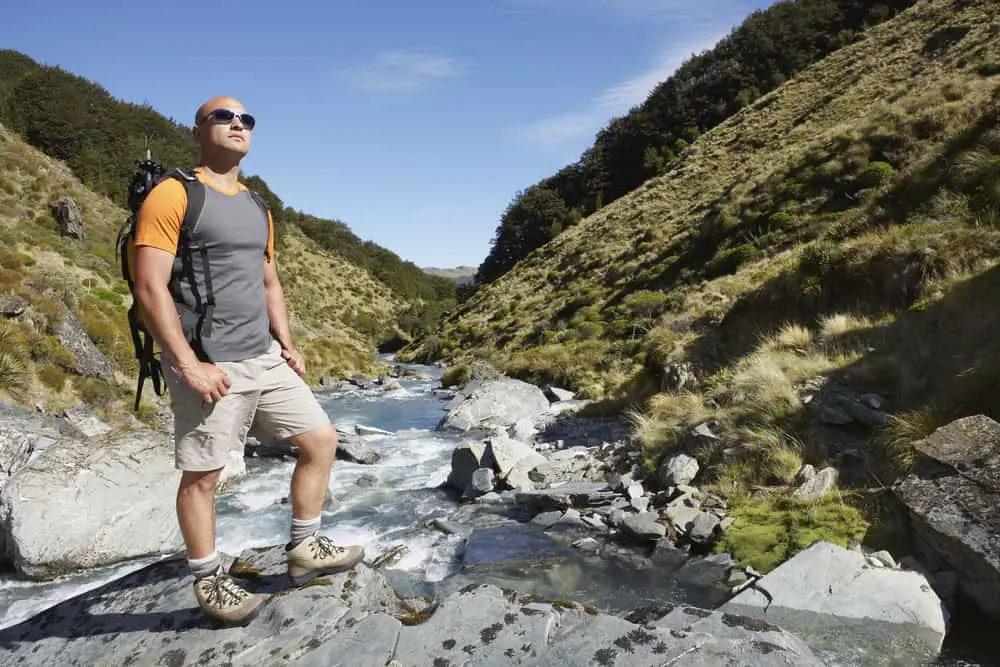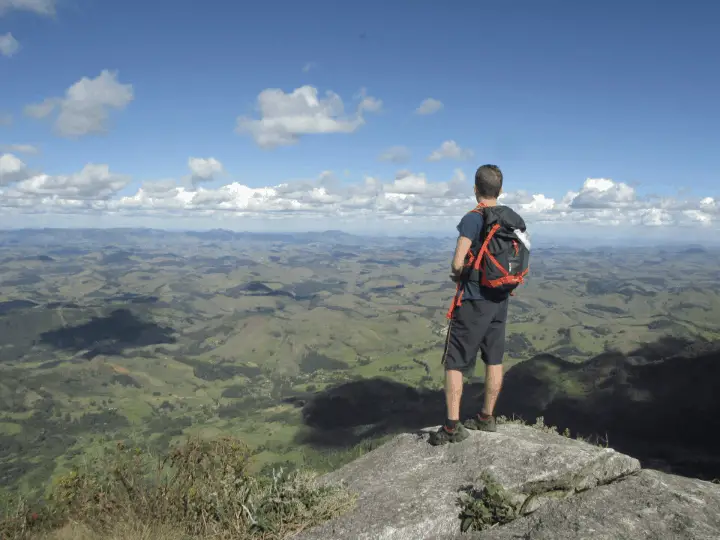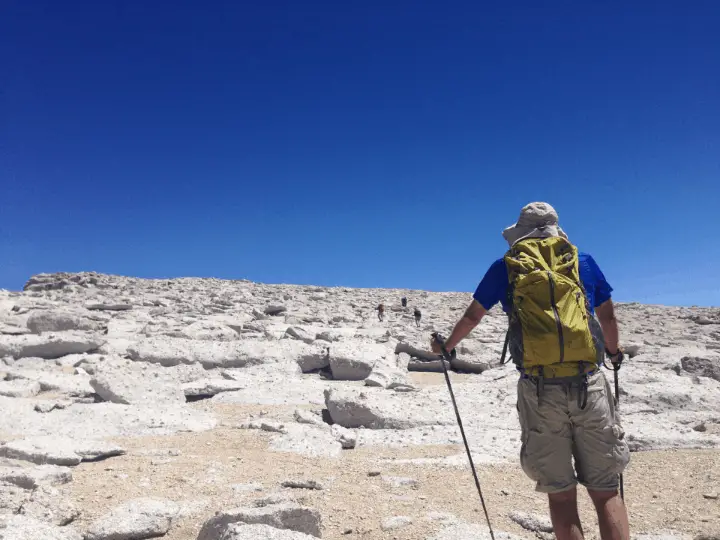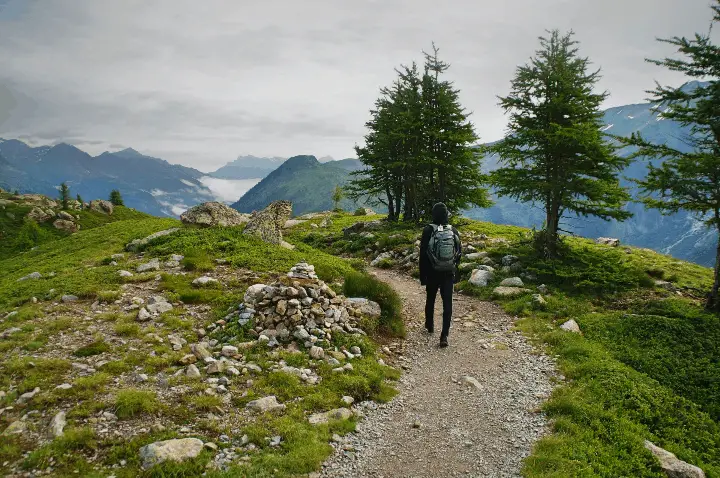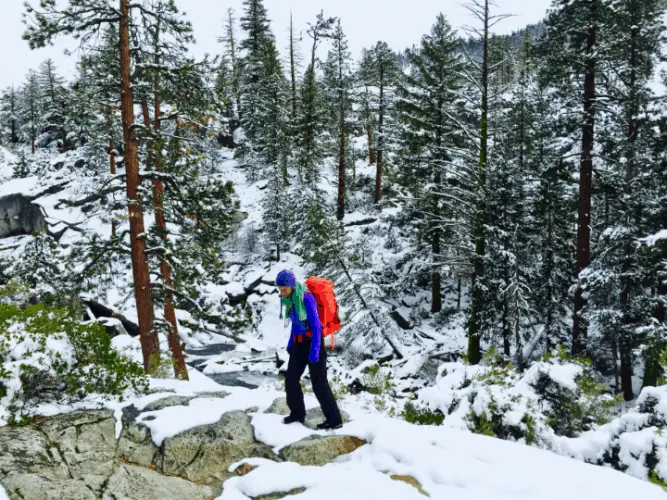Hiking Shorts Or Pants? Here’s The Surprising Answer
Hiking pants seem like the obvious answer for winter adventures, but the hiking shorts or pants debate remains a popular topic during summer.
Some argue that longer pants are better since they protect you from bugs and scrapes. Others complain that the legs snag easier and shorts are better for staying cool.
So, should we hike in hiking pants or shorts? There’s no right or wrong answer to this question – it all boils down to the terrain, weather conditions, comfort and personal preference. Hiking pants are typically more popular, as they provide excellent protection, but shorts offer much more comfort during summer.
You can, of course, seek the middle ground! If you’re planning a diverse range of hikes, we recommend on investing in a pair of convertible pants.
To demystify this age-old question, our team dives into the pros and cons of hiking pants and hiking shorts.
Let’s begin!
Should We Hike in Hiking Shorts or Hiking Pants?
Having interviewed countless hikers (and drawn conclusions from personal experience), our team concludes that the best hiking bottoms to wear depends largely on two things: hiking conditions and personal preference.
Most people, especially campers, tend to hike in long pants.
Hiking pants offer better coverage and protection against various risks: bug bites, poisonous plants and animals, rough terrain, chafing and temperature changes.
Some come with light insulation, meaning you can wear it throughout the year. If you’re worried about personal safety, hiking pants with strong knees is your pick. We have a cool list here.
On the other hand, hiking shorts are undoubtedly more comfortable. Not only do you have a freer range of movement, you’re less likely to heat up and bask in your sweat.
If the trail you’re hiking is well-maintained, without poisonous plants, and low on the insect population; safety rates lower on the priority scale.
In fact, on extremely hot days or muddy hikes, hiking shorts will keep you dry, cool and in less of a mess.
Things to Consider When Choosing Between Hiking Pants or Shorts
When choosing between hiking pants and shorts, consider these factors.
Terrain
Are you hiking on flat grounds or are you making a climb? Is the path cleared well, or do you have to wade through brambles and climb up rocky surfaces?
The more challenging and diverse the terrain, the more protection you’ll want – hiking pants are preferred. On easy, gentle hikes, however, hiking shorts work perfectly fine.
Weather considerations
Hiking shorts tend to be the go-to in extremely hot temperatures; you don’t want to overheat after all.
But if UV ratings are high and you’re hiking without any shade? Hiking pants provide good sun coverage.
It goes without saying that you’ll fare better in hiking pants in cold, windy weather; in rain, hiking shorts may offer more comfort and easier clean up.
Duration of the hike
Your choice may depend on the duration of the hike as well. It doesn’t matter much if you’re wearing hiking pants or shorts on a few-hour hike.
Overnight, however, you’ll have to take into consideration temperature fluctuations and protection against bugs.
Comfort
No matter how ventilated hiking pants claim to be, there’s no arguing against the unfettered freedom of wearing shorts.
Not only can you lift your legs as high as you want, there’s no sweat-laden material to stick to your skin.
On the other hand, long pants may prevent chafing – a very uncomfortable experience when hiking. Especially for overweight people.
Insulation
I’m sure it goes without saying that you should wear weather-appropriate gear.
Don’t forget to factor in potential temperature changes between trailhead and the highest point of your hike.
Functionality
I highly recommend you make a checklist of features you’d like in your pants or shorts.
This includes durability of material, storage options, weight, fit, flexibility, size adjustment features and more.
Your gear should fit your needs – whatever that means for you.
Preference
At the end of the day, it really boils down to preference. Do you prefer hiking pants or shorts?
Let’s take a closer look at the pros and cons of hiking pants or shorts.
Hiking in Pants
Here are the major pros and cons of hiking pants.
Pros:
- Protection against the terrain, especially if you go off-trail. Branches and brambles can do a lot of damage, as can rocks if you take a tumble.
- Protection against plants that do more harm than good, like poison ivy.
- Protection against bugs, especially in certain regions and climates. While mosquito bites are an annoyance at best and flies an unwelcome presence, ticks and other venomous pests (and rattlesnakes) come with the risk of painful bites, fevers, and diseases.
- With cuffs tucked into long socks, debris can’t make its way into your shoes.
- Prevents chafing since inseams are higher and the fabric cushions your skin.
- Extra insulation comes in handy if you’re ascending; temperature changes from trailhead and peak can be massive.
- Larger pockets and more storage options.
- Hiking pants with protective knee pads can provide additional support to the joints. We explain that in detail in this article.
Cons:
- More material, easier to snag.
- Bulkier, takes up more storage space if you’re packing to travel.
- Can be a lot more expensive depending on any additional features that come with pants.
Hiking in Shorts
And here are the most remarkable pros and cons of hiking shorts. Based on experience.
Pros:
- Comfort, comfort, comfort – shorts are best in hot weather conditions since even the most ventilated pants can’t compare to feeling the air on bare skin. Without material to trap heat and moisture, your legs stay cooler and dryer throughout the hike.
- Shorts don’t restrict movements; they allow a free range of motion.
- If it rains, your legs get wet but you won’t be stuck in soggy pants all day.
- Less material to snag, and much lighter weight. Can easily pack extras if you’re going on an extended trip.
- Minor it might be, but the lack of swishing sounds made by pants is a great win for noise-sensitive hikers.
Cons:
- Can get chilly, especially if you’re at a higher altitude with strong winds. (In this case, we recommend layering with leggings)
- Little to no protection; you can easily get scrapes, bug bites, sunburns; anything your legs are exposed to outdoors.
- Not suited for rugged terrain or cave exploring, meaning you’re limited on hiking grounds.
- Less versatile to wear since you can only wear them during summer.
Now that we have summarized the most prominent pros and cons of pants and shorts for hiking, let’s discuss the best of both worlds.
Convertible Pants
Still stuck between hiking pants or shorts? Why not make a compromise and invest in a pair of convertible hiking pants instead?
Just check out the video below that shows some really cool zipp convertible pants.
Also referred to as zip-off pants, convertible hiking pants have become more popular as people plan for year-round hikes.
The versatile gear is exactly what it sounds like: hiking pants with zippers cutting above or below the knee, so that you can detach the bottom piece and transform your pants into shorts.
Since conditions of a hike can change vastly depending on the season, convertible hiking pants are best for adapting to various terrains and temperatures.
I love being able to tailor my pants to different phases of my hike – I’d wear it long when whacking through bushes and less-traveled trails, but take off the legs when I’m getting too heated.
The versatile nature also means you can invest in a quality pair of pants instead of blowing your budget on a few different ones. It’s a practical, thoughtful choice.
What You Shouldn’t Wear When Hiking
Whether you decide to get hiking pants or shorts, do avoid any clothing that impedes movement or may cause injury when you’re hiking.
- Hiking in the buff – Some people like to bare it all, but it’s definitely not a good idea for many reasons listed above.
- Jeans – While many choose to hike in jeans, you’ll want to avoid wearing them when challenging steep slopes, tricky terrain that requires climbing, muddy trails and on incredibly hot days.
- Nice clothes you don’t want to get dirty – I think this goes without saying too. If you’re trying to impress on a date, stick to freshly cleaned active gear.
- Cotton pants – Because cotton absorbs up to 27 times its weight in water, it’s not good for hiking! It’ll absorb sweat, dry slow, weigh you down and lose all insulation properties when wet.
- Loose pants – Long or short, your bottoms better be fitted or risk snags.
Final Verdict
There may not be a clear-cut winner to the question of “hiking pants or shorts?”, but there are advantages to purchasing hiking pants.
They are arguably more versatile, since you can wear them throughout the different seasons.
Most hiking pants are made of lightweight material and designed for ventilation; safety should always be a priority.
Still, it’s perfectly okay to wear hiking shorts on easy trails without obstructions and poisonous plants. Bug spray or thin leggings do well to keep the pests away without taking away comfort or range of movement.
Convertible hiking pants give you both options in one package, providing coverage when you need it, and the chance to free your legs.
We highly suggest getting a pair if you like exploring various terrains across all seasons.
Ultimately, it comes down to preference. Get hiking gear that you know you will use and feel comfortable wearing!
Asen Stoyanchev
Founder of this website, Asen is a passionate hiker and writer who is also a gear nerd. He’s been featured on many established hiking websites where he gives hiking advice & tips. When he is not trekking with his family or friends, he is writing articles and product reviews. Asen spends most of his time in Bulgaria but he constantly travels the world in seek of more unforgettable experiences. Read more about Asen here.
